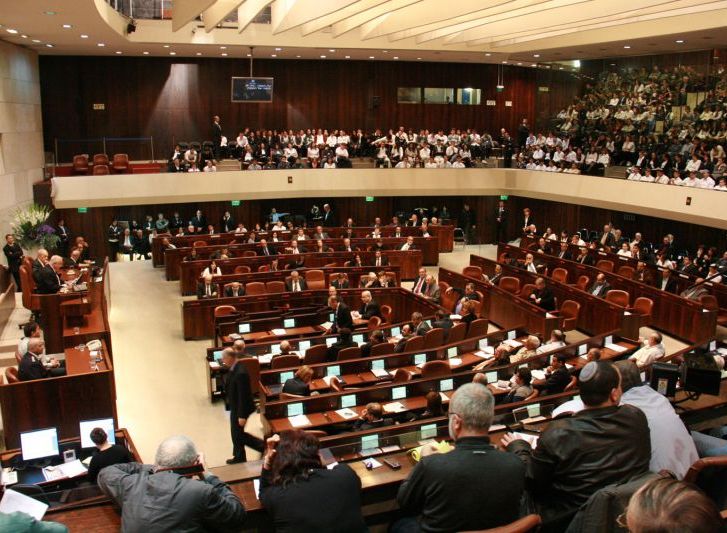Supreme Court Dismisses Petitions against Governmental Decision Freezing Family Unification Processes Initiated Prior to the Enactment of the
On 11 January 2007, the Supreme Court of Israel dismissed two petitions filed by Adalah and the Association for Civil Rights in Israel (ACRI) in 2002 demanding the cancellation of Government Decision #1813. The decision, which has been in effect since 12 May 2002, preceding the enactment of the Nationality and Entry into Israel Law (Temporary Order) (2003), ordered the freezing of implementation of the gradual naturalization process for gaining status in Israel for any spouse of an Israeli citizen who is "Palestinian, a resident of the Palestinian Authority or Palestinian by origin." In addition the decision stipulates that new applications for residency or citizenship status from such individuals will not be accepted. The petitioners' basic argument was that the government's decision is not contained in the Nationality and Entry into Israel Law and was not made in accordance with it.
Responding to the Court's decision, Adalah Attorney Orna Kohn, who filed the petition, stated that, "Once again, the Supreme Court has refused to offer judicial assistance to those damaged by the racist law which prevents family unification. This is not the end of the matter, as Adalah will submit a petition demanding that the Court cancel the extension of the validity of the existing law and/or the proposed amendments to it which are currently being discussed by the Knesset."
The governmental decision (in addition to a policy of the Interior Minister which preceded it) froze procedures for awarding status for Palestinians married to holders of Israeli citizenship. The Nationality and Entry into Israel Law, which was passed by the Knesset on 31 July 2003, incorporated the main elements of the decision. Both Adalah and ACRI submitted petitions challenging the governmental decision four years ago, and the Supreme Court concluded its deliberations on the petitions in July 2003. Following the enactment of the law, both organizations submitted petitions directly challenging its constitutionality in the summer of 2003. The Supreme Court decided that it would postpone issuing a ruling on the petitions challenging the governmental decision until after it had issued a final verdict on petitions challenging the law. On 14 May 2006, the Court rejected the petitions by a narrow majority of 6-5 justices. However, most of the justices were critical of the law and decided that it violated constitutional rights (including justices from the majority opinion who decided not to cancel the law). Following the delivery of this decision, Adalah and ACRI submitted a joint motion to the Supreme Court requesting that it issue a ruling on the petitions submitted in 2002, which was dismissed.
The joint motion to the Supreme Court, filed on 16 May 2006, emphasized that a clear majority of the expanded panel of Supreme Court Justices had ruled that the law violates the constitutional rights to family life and equality. The violation of a constitutional right is only permissible with or according to specific authorization in law, the petitioners argued. It is clear, therefore, that the government's decision is legally void, as it violates these constitutional rights, and the petitioners called on the Court to annul it. The meaning of such a ruling, the organizations argued, is not simply declarative; by ruling the government decision void, Israeli citizens and residents who attempted to apply during the period between the government decision and the enactment of the law, but were prohibited, would be able to enter the gradual naturalization process.
In response, the state argued that the governmental decision is clearly encompassed in the Nationality and Entry into Israel Law and, in view of the fact that petitions challenging the law's constitutionality were dismissed, the petitions challenging the decision should also be dismissed.
The Court concurred with the state's arguments. In the words of Chief Justice Dorit Beinisch, "When we arrived at the result that the directives of the Nationality and Entry into Israel Law also apply to applications filed prior to the law's coming into effect, there is no need to respond to the question of the legality of the governmental decision which preceded the law."
On 15 January 2007, the Knesset approved the government's decision of 14 January, to extend the Nationality and Entry into Israel Law (Temporary Order 2003) for an additional three months. Prior to passing this extension of the law, the Knesset considered the government's new bill to extend the law for two years and to expand it in order to ban family unification between Israeli citizens and their spouses from so-called "enemy states": Syria, Lebanon, Iran and Iraq. In that bill, which passed its first reading, the government also sought authorization to add other countries and regions to this list as it sees fit, without obtaining the approval of the Knesset.
H.C. 4608/02, Awad et al. v. The Prime Minister of Israel, et al. (dismissed 11.1.07) [Adalah's petition]
H.C. 4022/02, ACRI, et al. v. Minister of Interior, et al. (dismissed 11.1.07) [ACRI's petition]
![]() The Joint Motion of Adalah and ACRI (Hebrew)
The Joint Motion of Adalah and ACRI (Hebrew)
![]() The Decision of the Supreme Court (Hebrew)
The Decision of the Supreme Court (Hebrew)


















